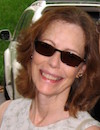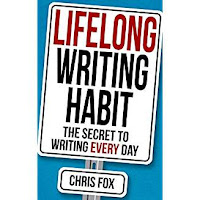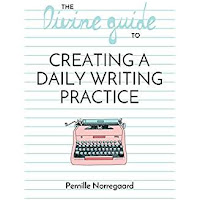Follow Your Bliss
where there were only walls.” Joseph Campbell
been trying to finish an amateur sleuth mystery (the next Holly Price story) but another story keeps nagging at me. It’s one I’ve picked up and put
down about a dozen times; changed the focus; the motivation; everything except
the central characters and the theme.
not sure why that book keeps pulling me back. Maybe it comes from the idea that
each one of us has something special to contribute—maybe work we feel compelled
to do. By doing it, we feel fulfilled and enrich the world. Joseph Campbell
talks about finding your own path (“If you can see your path laid out in front
of you step by step, you know it’s not your path. Your own path you make with
every step you take. That’s why it’s your path.”).
 How do you find that path?
How do you find that path?Some refer to it as following your bliss. Others say, find your heart’s
passion.
is that passion the broader goal or a kernel that embodies it?
many of us on this blog, our passion is writing. Taking intuitions, snippets,
dreams and moments of pure fantasy imagination. Adding overheard conversations,
glimpses of a vignette as we pass by. Grabbing that nebulous possibility, and
shaping and turning into a polished story. Is writing the passion we want to
share with the world? Or is it a particular theme or story that we feel we have
to tell to reach that bliss?
really have no idea, so I keep putting one foot in front of the other and
step-by-step find my path.
strolling along with a forensic accountant who’s trying to find her own path through life…
You might hear a bit more about her later. But as much fun as
the amateur sleuth story is to write, that other story is still there, a siren song.
to become an author, maybe we chose a certain path because we fear the stories
we want to write won’t sell. We love chic lit or romantic mysteries or literary
stories where the characters rule and the words flow to a different rhythm, but
we read online, hear from editors, agents, creative writing texts that D, all
the above are passé. We’re tempted to follow trends rather than listen to the
story inside us. I think most of us have cleared that hurdle, but the doubt is
always there–should I have chosen a different path?
path to “here.” Sure, there have been highs and lows, joys and
regrets. I’m happy our paths crossed, here on the blog, at various publishers, conferences, or any of the other places we’ve connected. I hope my passion for writing lives
on and that I can share my joy and make a small corner of the worlds a better
place.
think my other story is still growing—or growing up—quietly evolving in my
subconscious. I have many books still to write.
will one day be the one I have to tell.
Jump.
think.”
Campbell
An award-winning author of financial mysteries, Cathy Perkins writes twisting dark suspense and light amateur sleuth stories. When not writing, she battles with the beavers over the pond height or heads out on another travel adventure. She lives in Washington with her husband, children, several dogs and the resident deer herd. Visit her at http://cperkinswrites.com or on Facebook
Sign up for her new release announcement newsletter in either place.
She’s hard at work on sequel to The Body in the Beaver Pond, which was recently presented with the Claymore Award.





